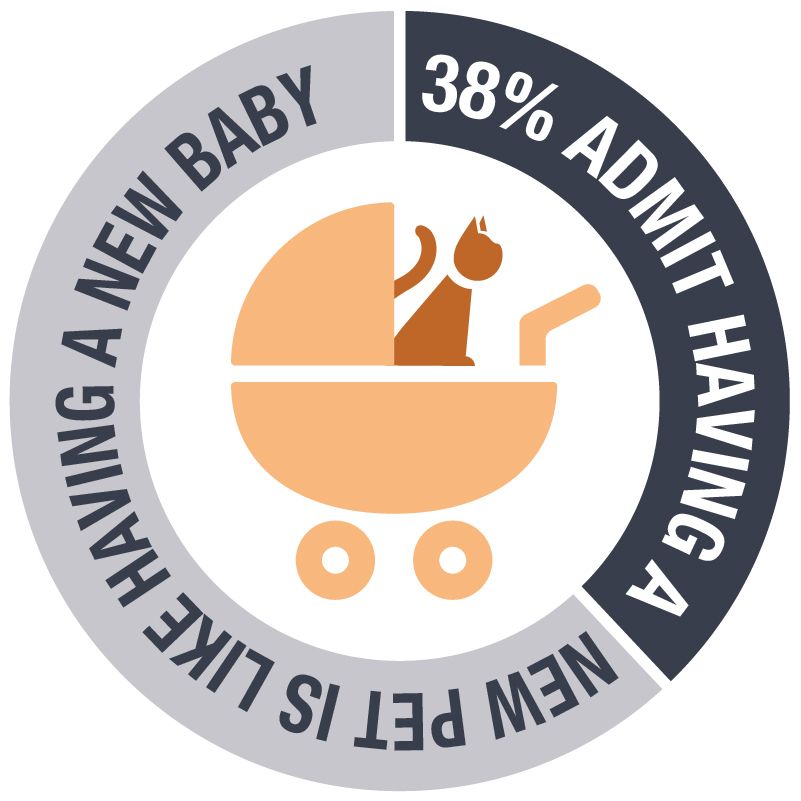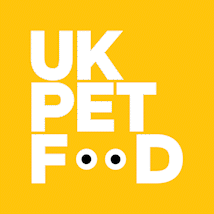New Pet Population Data released
Today, the Pet Food Manufacturers’ Association (PFMA) releases its annual pet population data[i], confirming that 3.2 million households in the UK have acquired a pet since the start of the pandemic[ii]. Largely driven by Gen Z and Millennials, two thirds (59%) of new owners are aged 16-34 and 56% of new pet owners have children at home. Although 74% claim their pet has helped their mental health through the pandemic, the study raises pet welfare concerns.

There are now 34 million pets in the UK including 12 million cats and 12 million dogs, 3.2 million small mammals such as guinea pigs and hamsters, 3 million birds and 1.5 million reptiles. There are also 5 million aquaria. This equates to 17 million households responsible for a pet’s welfare. Notably, over a third (38%) of new owners claimed that having a new pet was like having a new baby and almost a fifth (17%) of families with children admitted that training was more challenging than expected. Sadly, 5% have already had to give up a pet and this figure increased to 11% among families.
Nicole Paley, PFMA deputy CEO, comments: “Our research confirms the belief that many more people are benefitting from pet ownership and we are reassured by the mental health findings. However, it is clear that we need to consider the welfare of these new pets. As our survey highlights, introducing a pet to a household in Covid times can have repercussions or create some unexpected difficulties.”
“We also looked in more detail at the future concerns of new pet owners. Perhaps worryingly, although just 15% have a pet-friendly office environment, only 10% were concerned about returning to work and spending less time with their pet. This figure rises among younger generations with 15% of 16-34 year olds concerned about spending less time with their pet in the future. We must work together with the pet care sector to ensure the 3.2 million households with new pets get the support they need. This is in terms of access to educational material, training and adequate flexible working from home or pets in the office policies.”
RSPCA pet welfare expert Dr Samantha Gaines said: “As these figures demonstrate, a huge number of people have added a new pet to their family during lockdown while other pet owners have made the most of spending more time at home during the pandemic to enjoy the company of their pets.
“Many of our pets are now used to having us around all the time while others have never known any different so we have real concerns that life post-lockdown, both in terms of a new routine and spending time alone, could be really difficult for them to adjust to which is why it’s so important that owners start to prepare them now. In the absence of this preparation, pets could be facing their own crisis.”
 Two very different households in South London have compared pandemic puppy stories – having initially met walking their very similar dogs in a South London park.
Two very different households in South London have compared pandemic puppy stories – having initially met walking their very similar dogs in a South London park.
The Flints (Steve and Fritha late 40s with children Charlie 11, Jack 13 and Poppy 14) explain: “During the first lockdown, we realised we had time to introduce a dog to our family – something we had wanted for years. We started our research by looking after friends’ dogs to check the animals didn’t trigger any allergies and finally, this January, we added Minnie (a Schnoodle Schnauzer / Poodle mix) to our family. Minnie has been such a positive distraction during lockdown and it has certainly benefitted our children’s mental health. Whenever they have felt lonely or miserable, cuddling Minnie has put a smile on their faces.
Training has been the only challenge because puppy classes have not been permitted – and there are five of us to pamper her and give slightly different instructions! Minnie is now four months old and we are in the middle of an excellent online zoom course with Battersea so hopefully that will help iron out our concerns. Returning to work will fortunately be OK as one of us will always work from home.”
Marie Da Silva is 30 and single. She found her puppy Stevie – also a Schnoodle – at the end of December. Marie explains: “I have always wanted a dog and chose a doodle mix for temperament and being hypoallergenic. I also needed a small puppy as I live in a flat with a small outside space. Stevie is an absolute ray of sunshine. Every morning she is so excited to see me and go on her walk. She is always making us laugh and has such a kooky personality – she just makes a bad day not so bad and a good day even better!
There is no way I could have adjusted to life with a puppy had there not been a pandemic. Luckily, I work in a dog friendly office and the two months of lockdown have really helped me train her. However, you shouldn’t under estimate how demanding and time consuming they can be! She's definitely adventurous but nothing that some training sessions can't fix.”
Battersea’s Canine Behaviourist and Training Manager Janine Pemberthy comments: “As many of us eagerly prepare to start spending more time outside our home again, whether it be to go into the office, visit friends or head to the pub, it is vital that we ensure our pets are also prepared for this big lifestyle change. There’s a whole generation of new dogs that don’t yet understand that lockdown life isn’t the norm, and as a result we believe there may be some key areas that owners will need to work on with their dog, such as separation anxiety and meeting new people and other dogs, before we all return to ‘normal’ life. To help with this preparation, Battersea is hosting a series of virtual training classes focusing on specific areas of training for puppies and young adult dogs, and we encourage all members of the family to take part. Rescues like Battersea are here to help owners long before they need to make the difficult decision to give up their pet and we’d urge anyone struggling to care for their dog to get in touch.”
Dr Gaines adds: “Throughout the pandemic, members of the Canine and Feline Sector Group worked together to produce a variety of resources for pet owners. The RSPCA, Battersea, PFMA and other welfare organisations hope to continue this collaborative work so that owners have access to advice from the UK’s best loved charities and experts helping them prepare their pets and to avoid any unnecessary anxiety once our lives start to return to normal.”
Nicole concludes: “It’s never too late to ask for help with your new pet and with the right support in place, families can continue to enjoy the company of their pets and the benefits of the incredible bond we have with our animals, for years to come. We work closely with those in the pet industry to ensure that new pet owners can access good information to help them become and remain responsible pet owners. For top tips, owners should visit https://www.pfma.org.uk/pet-care and for more pet data please visit https://www.pfma.org.uk/statistics.”
ENDS
For more information on statistics, pet health advice, interviews with spokespeople or case-studies and photos (we have dog, cat, small mammal pet owner), please contact [email protected] (07718 518579) or [email protected] (07465 262216) or [email protected] (07776 184083). RSPCA also available [email protected] / 0300 123 0244
Notes to Editors
PFMA has been working with Kantar and Soulor Consulting since 2008. Each year a representative sample of approximately 4000 UK adults have been interviewed face-to-face about their pet ownership. However, in 2021 due to the Covid Pandemic, the survey moved online. The change in methodology means that the sample size is larger (5093) and current 2021 figures should not be compared to previous years.
In order to substantiate the growth, we have spoken to industry colleagues and it is widely recognised that there has been growth. Plus PFMA annual Market Data scheme also suggests there has been a population increase over the last year. However, due to the methodology change, it is not possible to benchmark the change.
[i] Each year a representative sample of UK adults are interviewed by Kantar / Soulor Consulting about their pet ownership. Pre-pandemic, since 2014, interviews were face-to-face. However, in 2021 5093 interviews took place online and from this sample we derive the main pet population figures. A subset of this sample size (2558 pet owners) were asked questions about ownership during the Pandemic.
PFMA’s Top Ten Pets are:
- 12m dogs
- 12m cats
- 1.3m indoor birds
- 1.2m domestic fowl
- 1m rabbits
- 0.8m Guinea pigs
- 0.6m hamsters
- 0.5m horses and ponies
- 0.5m pigeons
- 0.4m tortoises and turtles
Note: All figures are rounded to the nearest 100,000.
5m million indoor fish tanks (12% households)
4m million outdoor ponds
[ii] From the subset sample of 2558 pet owners, 11% of pet owners surveyed confirmed their pet was new since the Pandemic. 11% of 29.24 million households is 3.2 million households.





